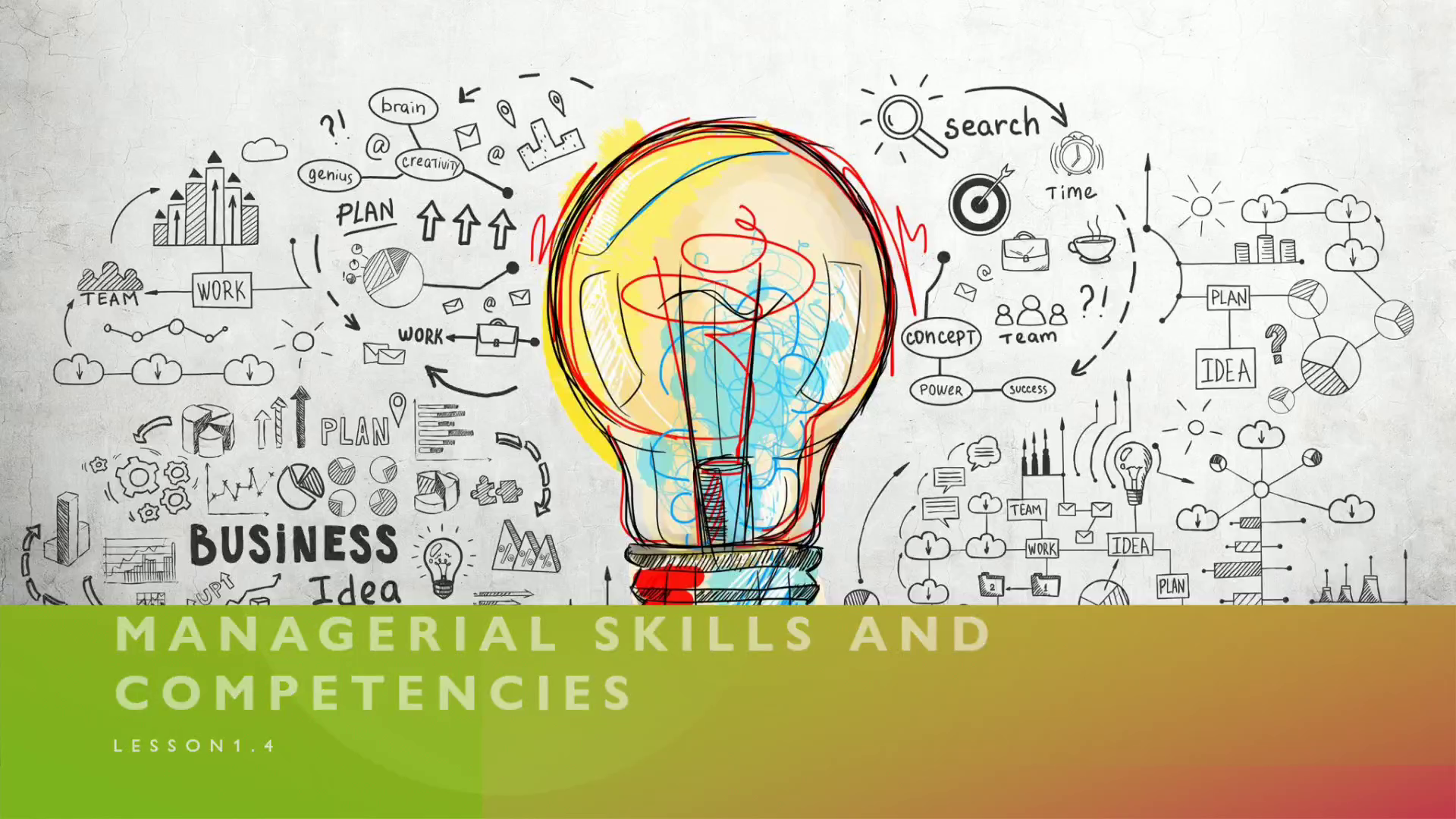
Page 1 (0s)
[Audio] Welcome to Lesson 1.4: Managerial Skills and competencies..
Page 2 (9s)
[Audio] In previous lessons, we explored the concept of management, its functions, and the various types of managers and their roles. In Lesson 1.4, we will discuss the essential skills and competencies that managers need to possess to be successful in their roles. Understanding and developing these skills is crucial for anyone aspiring to work in management or seeking to improve their effectiveness as a manager..
Page 3 (36s)
[Audio] Technical Skills Technical skills refer to the knowledge and expertise required to perform specific tasks and functions within an organization. Managers need to have a solid understanding of the processes, tools, and techniques relevant to their area of responsibility. Some examples of technical skills include: Data analysis Project management Financial management Marketing strategies Product development.
Page 4 (1m 12s)
[Audio] Human Skills Human skills, also known as interpersonal or people skills, involve the ability to work effectively with others, build relationships, and inspire teamwork. Managers with strong human skills are better equipped to motivate and support their teams, resolve conflicts, and foster a positive work environment. Key human skills include: Communication Active listening Empathy Motivation Conflict resolution.
Page 5 (1m 48s)
[Audio] Conceptual Skills Conceptual skills involve the ability to think critically, analyze complex situations, and develop innovative solutions to problems. Managers with strong conceptual skills can envision the big picture, identify patterns and trends, and make strategic decisions that drive organizational success. Some examples of conceptual skills include: Strategic thinking Problem-solving Decision-making Creativity Adaptability.
Page 6 (2m 27s)
[Audio] Leadership Skills Leadership skills are essential for managers, as they are responsible for guiding, directing, and influencing their teams to achieve organizational goals. Effective leadership involves setting a clear vision, creating a supportive environment, and empowering employees to take ownership of their work. Key leadership skills include: Visionary thinking Goal-setting Delegation Coaching and mentoring Emotional intelligence.
Page 7 (3m 3s)
[Audio] Time Management Skills Managers often juggle multiple tasks, projects, and responsibilities. Effective time management skills help managers prioritize their work, allocate resources efficiently, and ensure that deadlines are met. Key time management skills include: Prioritization Planning and scheduling Task delegation Managing interruptions Balancing short-term and long-term goals.
Page 8 (3m 38s)
[Audio] Summary In this lesson, we have discussed the essential skills and competencies that managers need to possess to be successful in their roles, including technical, human, conceptual, leadership, and time management skills. As you continue your journey in this course, you'll gain deeper insights into each of these skill sets and learn how to apply them in various management situations. Developing and honing these skills will not only help you excel in a managerial role but also enhance your overall effectiveness and marketability within the business world..